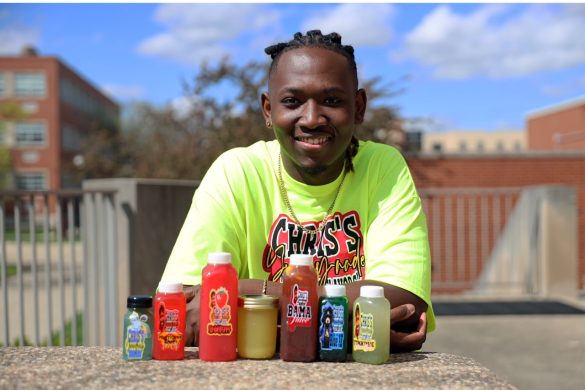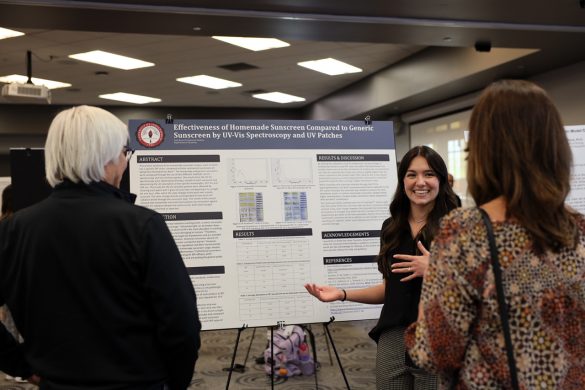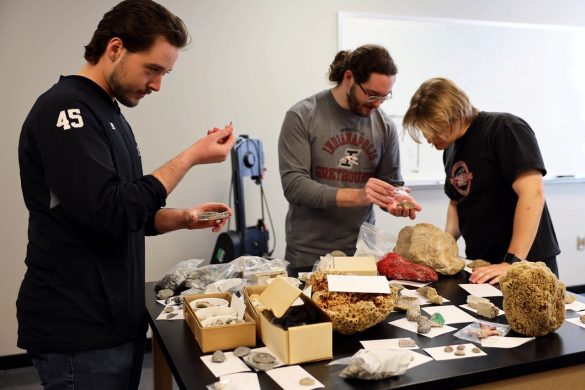As the COVID-19 pandemic has upended many aspects of daily life, people may have found themselves out of a traditional job and facing unemployment. But with the job market looking bleak, sometimes creative solutions had to be found to make ends meet.
Ty Williams, a sophomore business administration major and member of the University of Indianapolis baseball team, said he decided to start streaming video games online last semester, when the campus suspended in-person operations. Many states were under stay-at-home orders, and traditional jobs were hard to come by.
“It kind of hit me [that] so many kids are at home with nothing to do. Video games and streaming and everything online is going to be popping … [and] doing really well. I like playing video games as it is, so that’s what I started doing. I got on Twitch, and I started playing and streaming,” Williams said. “I would say a few weeks into really putting a lot of time and effort into it, I started to gain some traction, and I started doing pretty well. It was pretty good. I was making a little bit of money on the side.”
Williams said he mainly streams Fortnite from his PC onto Twitch, an online streaming platform. His username is “Tactful,” and his setup includes a couple of monitors, a camera and a studio microphone in addition to his computer, he said. According to Williams, he streamed nearly every day last summer. However, he said he currently is focusing on school and baseball.
“The harsh reality of the online world is that if you’re not doing it full time, and you’re not doing it six to seven days a week consistently at the same time every day, it’s near impossible to sustain any kind of success or see any growth on your channel,” Williams said. “When I would try to do that and balance school and baseball, I would realize how thin I was spreading myself. You can’t put too much time into everything, because you’re never going to do everything great — you’ll just do everything okay.”
According to Williams, before he started streaming, he played a lot of video games and watched many streamers. He said this sparked an interest in streaming, and he decided eventually to purchase some equipment to try it out.
“I felt like I knew the space pretty well and how to interact with viewers and chatters and how to talk with people,” Williams said. “It really didn’t come as a surprise to me that I started having a little bit of success on the platform. I kind of knew my strategy and knew my route, and I think I did pretty well.”
Other students also have been able to take advantage of opportunities created by COVID-19. Meridian Stowers, a sophomore pre-occupational therapy and psychology major, said she worked at a factory assembling ventilators to be used in hospitals coping with the pandemic.
According to Stowers, she received an email from General Motors in April about the opening of a factory in Kokomo, Ind., that soon would be offering jobs. Stowers said General Motors was partnering with Ventec Life Systems to assemble the ventilators.
She said she was the last person to inspect the ventilators before they were sent to hospitals, which included putting components together, running tests on them and packaging them for delivery. Stowers said eventually she was promoted to a management position. She said the factory, funded by the CARES Act, assembled 30,000 ventilators as part of its operational contract.
Stower said the job was not without its challenges. She said she had no background in manufacturing and was the youngest person and only female in management. She said she applied expecting to get a desk job but instead was placed on the assembly line. Simultaneously working and studying full time also was difficult, she said.
“It was a fun balancing act; it really was,” Stowers said. “I didn’t [balance work and school] at first, because at the beginning, I had never done online school before, and all of a sudden, we were in the middle of a pandemic, and all of my really hard classes were now online. That was really hard, and at the beginning, I really didn’t manage it. Trying to do final exams while working 50+ hours was ridiculously hard.”
However, Stowers said she wrote down assignments and studied throughout the day during breaks to keep on top of her schoolwork. She said she also blocked off certain times just to focus on education-related matters.
According to Stowers, she had many reasons for wanting to work at the factory, but altruism was one of the most important to her.
“I was sitting at home [mostly] doing nothing other than attending Zooms for class, and I was like, ‘I should go out and help people while I can,’” Stowers said.







